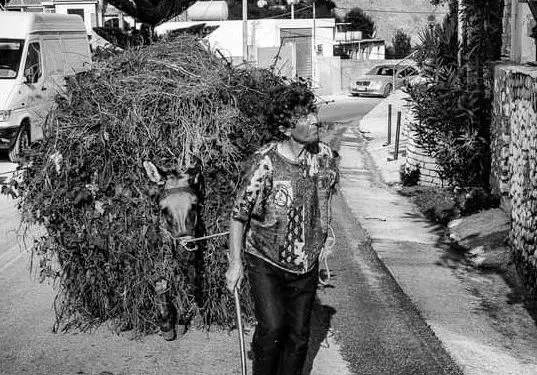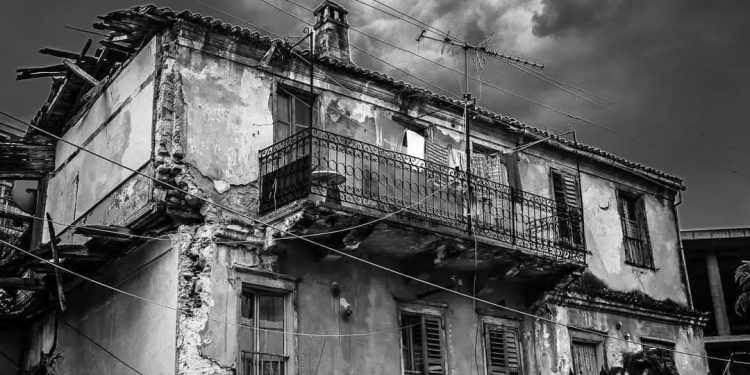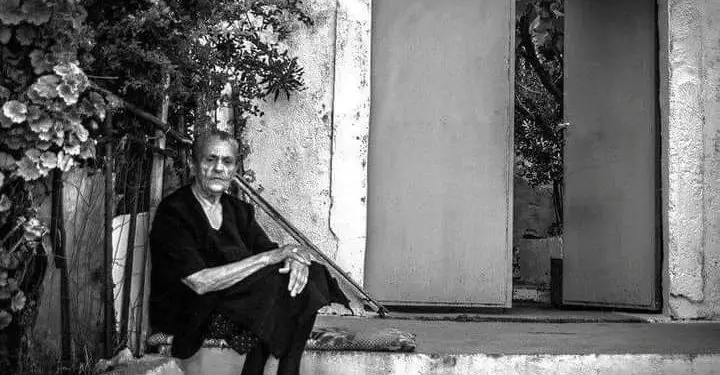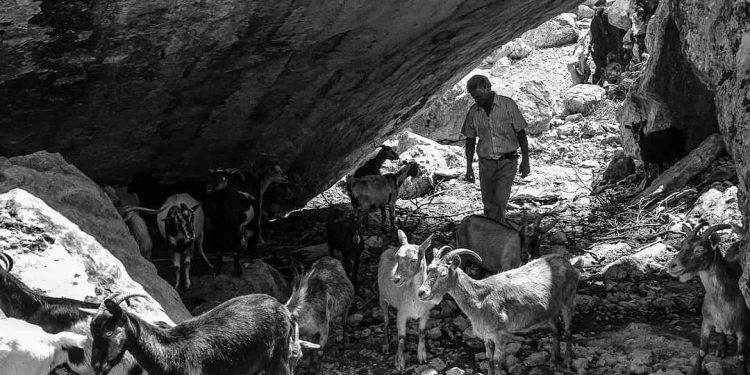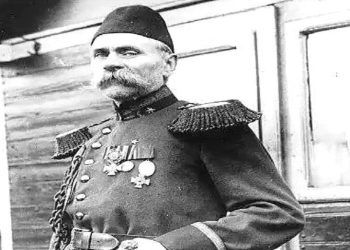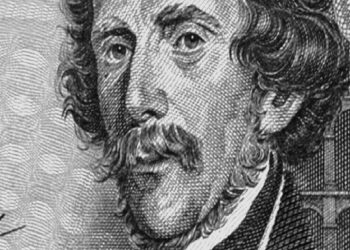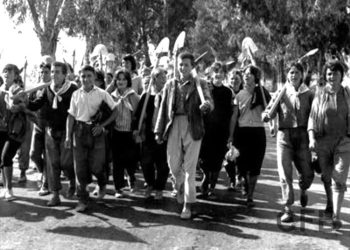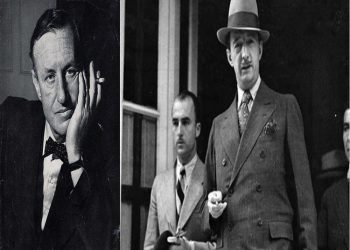By Vasil Qesari
Memorie.al/ The overthrow of the great totalitarian edifice in Albania would leave behind, not only the change of the system, accompanied by lots of hopes, mirages and cries of happiness but, unfortunately, also many wounds, dramas, victims, dust, milk and disappointments from the most different. Ten years and more after that event, which deeply shook society, completely overturning many previous codes, rules and concepts, people still continue to ask themselves such questions as: What really happened in society Albanian, during the last 50 years of the dictatorship? How was it possible that the system managed to warp everything? Why did people accept it? What was the totalitarian logic of the transformation of society and the individual? How were the structures of totalitarian mechanisms conceived and functioning: propaganda, secret police and the exercise of the ideology of terror? How did it happen that among all the communist countries of Eastern Europe, Albania was considered an exception or a special case? Why did Enver Hoxha remain blindly, fanatically loyal to Stalin until the end, turning the country into a prison where violence, fear and purges continued until the end of the 80s? Why was the country so insanely isolated, locking people up between bunkers and barbed wire? Why, then, did all the above phenomena happen…?! The book “Post-scriptum for Dictatorship” does not claim to provide definitive answers to the above questions, or the complexity of the reasons that brought and maintained the totalitarian power in Albania. Nor is it a complete, deep and comprehensive fresco of the life and suffering that people experienced during that system. Its author, perhaps, has the merit that together with the retrospective view of the totalitarian period as well as the zeal of a passionate analyst, he has tried to turn his head back once again, to give not only his personal memories and opinions, but also to return once again to the vision of that era with the simple philosophy of preserving the Memory and supporting the Appeal to never forget the well-known maxim, that…the corpse’s nails and hair continue to grow even after death! Ten years or more after the great revolution, the book in question has current value and we hope it will be appreciated by the reader because, as an Albanian researcher also says… the greatest evil that can happen to a people comes when he fails to analyze his own past. An amnesic people are forced to be constantly neuropathic and repeat their painful experiences…!
HIMARA ON THE SEASIDE…!
In order to strengthen its absolute power, the totalitarian state needed to create not only individuals, groups or layers of enemies, but when needed, even entire provinces. Mirdita and Himara have been classic examples of terror, violence and such divisions through the activity of the Security. And this was not accidental.
Like the brave and indomitable inhabitants of the North, the Himarjotes in the South also had an ancient and eventful history of bravery. Both Mirdita and Bregdeti, due to the resistance of their unparalleled war against the Turkish invaders, had managed to be recognized by the High Gate as free territories, thus preserving intact, independence, freedom, property and their Christian religion.
The Himarjots, from generation to generation, have been a persistently rebellious population, and have never been exposed to oppression, injustice and arbitrariness. This made the Concept of Freedom to be closely related to the opposition of any type of dictate, no matter where it originates from. However, the non-acceptance of the dictates of the laying mother was in flagrant contradiction with the nature of the totalitarian state.
This is the reason why, during the communist regime, Himara was constantly described as rebellious, suspicious, pro-Greek, etc. All these were nothing more than excuses to motivate violence and oppression against a province which did not at all like communism, collective property, atheism, servility and mercenarism.
… The drama of Himarë and the Himarjots started after the elections of December 1945, when a good part of its people voted against the representatives of the Democratic Front. After that, the ALP declared that province an enemy. (It was no coincidence that the same attitude was maintained towards Mirdita and some other areas in the north of the country). The Party entrusted the division, intimidation, incarceration and punishment of the Himarjots to its faithful weapon, the State Security.
Himara, Dhërmiu, Palasa and Qeparoi were among the villages that paid even more dearly for their rebellion. Kulak announcements (for 100 olive roots more than the others, is it because of a junk shop), arrests, trials and imprisonments started an masse. Dozens and dozens of families were exiled to different areas of the country, while the people began to live under the threat of fear and repression.
Operatives, agents and collaborators of the Coastal Security, became all-powerful. One word or suspicion was enough and anyone would end up directly in the prison cells. Security became omnipresent throughout the province. The order from above was clear and cut:
“… Strike mercilessly! Smash wherever and whoever you suspect! Divide families and tribes! Insert your people among them! Invent and fabricate everything, so that not only men and women are frightened, but also the toads in the womb of the mother…”!
In order to find pretexts for more pressure, purges and arrests, it was often the Security operatives themselves, who organized and fabricated the so-called border violations by external enemies. Such as, it is said, the landing in Gjodhime of Qeparo, of a saboteur named Alexi. After the landing, which was nothing more than a game of the Security, P. Aleksi and his brother-in-law, S. Guma, were arrested.
In the course of the years, the State Security managed to achieve on the coast, what the hordes of the Turkish conqueror had not been able to do for centuries. The province was seen everywhere with a bad eye, while its people were prodigal and pro-Greek. Regarding the latter, i.e. with the Greek designation of the Himarjotes, a dirty strategy and game has been played, for which it is worth briefly giving only two explanations.
First: it was the totalitarian regime itself, the one that fabricated and supported the slogans and propaganda that the Himarjotes were pro-Greek.
Second: the war and his contempt for the Himarjots, was nothing more than an expression of hatred towards Christianity, as the official religion of the West, and therefore also of the bourgeoisie.
The settings: “foreigners”, “Kaura”, “Greeks”, “boils on the body of the motherland”, etc., were in the interest of the regime, which needed to find as many reasons as possible to motivate and justify the division, oppression and the terror practiced in the province. The policy of APS, anti-Himara, has been clear, open, concrete and unequivocal. According to her, the Himarjots had their eyes on Greece and this is precisely the reason why they did not love and despise communism.
Thus, during the entire existence of the dictatorship, Himara remained a delicate and very specific problem for the Party bodies and the State Security. To make matters worse, the province, apart from the indifference, coldness and unwillingness of the regime, also had a lot of contact with the foreign world. Traditionally, since the 20s and after, great poverty had pushed hundreds of Himarjo families to take the paths of the Kurbet.
First, in the neighboring country, Greece, and then in the USA, France, etc. In the course of the years, a small part had returned to their homeland, but still, on the other side, there were many families who, after the installation of communism in Albania, were separated forever and ever with their relatives.
The consequences of the curve were tragic. Many mothers, already old and shabby, had their sons outside who had children and then got married and had grandchildren. On the other hand, the children were left by their fathers in their mother’s womb, they knew that their fathers were far away, in foreign countries, but they felt themselves orphans.
(Precisely, in that thrilling drama of the coast, the well-known song ‘Vajza e Valëve’, written by the famous Himarjot artist, Neço Muka, has its origins).
Thus, the presence of a large number of foreigners abroad (a small part of which had fled the country during and after 1944), was a sharp problem for the organs of the communist dictatorship of Enver Hoxha and his successor, Ramiz Ali. . The existence of mass immigration to enemy countries was considered a potential risk for the stability and success of building socialism in the province.
That’s why, the State Security constantly kept the “sharpened sword”, to strike without hesitation and mercy, on anyone it suspected, even without the slightest proof. But, despite all the political and psychological terror, people continued to take risks by not cutting off contacts with their relatives, especially through exchanging letters and receiving packages.
The constant threats of the State Security, as well as the systematic pressures of the Front Party organizations, had never produced the desired results. Therefore, to put an end once and for all to that extremely dangerous situation, shortly after the 4th plenum of the ALP Central Committee (1974), the Party Committee in Vlora initiated an initiative revolutionary action undertaken, allegedly, by all the people of the Coast – an event which was accompanied with much fanfare by local and national propaganda.
(By means of an Open Letter, conceived and compiled in the Party offices, the people of the Coast solemnly pledged to Comrade Enver that they would sever all ties with people and relatives abroad, and that they would reject every letter and package sent by them. We do not need the rags of the West – it was written among other things – Because the Party has provided us with all the good things in abundance. The state stores are full of food and clothing. Our life is happy. ..!)
The vows of that initiative, imposed by fear and threats, became binding on every village. Publicly and through special meetings, people were forced to declare that they would reject anything that would come to them from outside. Meanwhile, those who would dare to violate the sacred pledge solemnly taken before the Party would receive the deserved punishment: first, through remarks in the organizations of the Democratic Front, and then through other persuasive means.
Of course, whoever was stubborn had a job first, in the political sector of the Party Committee and then in the offices of the Security, where it was advised that he would end up in the dungeon if he accepted even a letter from abroad…!
The climate of panic that plagued the whole country, after the 4th Plenum, as well as the threats, pressures and arrests, finally gave the expected results. The strict controls of the correspondence, the verification of people who received packages from abroad, their exposure in the work centers, neighborhood of the Democratic Front, aroused an indescribable fear.
According to a statistic of the postal office in the PPT of Vlora, only during 1974, the arrival of letters from abroad had decreased by 90%, while only 12 packages were received from various citizens, while over 160 others were returned that is, to the destinations of foreign countries from where it was started.
To illustrate this situation, it is worth noting the case of the Vlonjat citizen V.A., who, on the occasion of his child’s birthday, received a postal package with a doll inside from a foreign friend. The person in question was forced to return it, accompanied by a written refusal statement, due to fear of consequences.
Also, in order to unmask the official M.Q., four sessions of special meetings of the Party’s basic organization were urgently held at his work center. The reason was that his mother-in-law had agreed to receive a headscarf from Greece.
(The black scarf, like the life of the coasts itself, was an inseparable part of the traditional costume of women and unfortunate old women of Himarjota). Memorie.al
The next issue follows




